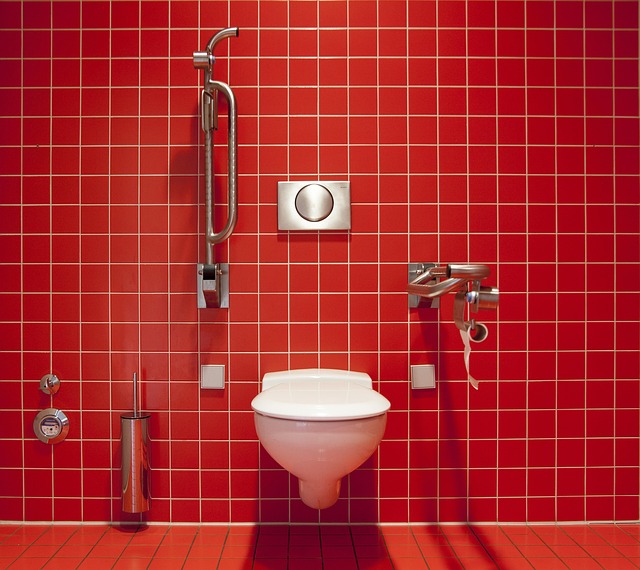Unlock Your Ideal Bowel Movement Frequency: The 8 Surprising Body Types of Korean Medicine
In traditional Korean thought, there’s a concept called “Sam-kwae,” which translates to the “Three Comforts”: comfortable eating, comfortable bowel movements, and comfortable sleep. These three pillars are considered the ultimate signs of good health. Clinically, individuals who can achieve these “Three Comforts” are seen as robust, healthy, and quick to recover from illness.
While “comfortable bowel movements” includes both urination and defecation, urination patterns are relatively consistent among people. Defecation, however, is a different story. The ideal cycle, stool consistency, and tendency toward constipation vary dramatically from person to person. This often leads to a common question: “What is a normal bowel movement frequency?”
Many people worry if they don’t have a bowel movement every day, but this “one-size-fits-all” approach is a myth. Korean constitutional medicine, specifically the 8 Constitutions theory, offers a fascinating perspective: your ideal bowel movement frequency is determined by your innate body type.
Let’s explore how your constitution can define your unique digestive rhythm.
Hepatonia & Colonotonia: Sensitive and Reactive Systems
Individuals with these constitutions are known for having a highly responsive digestive system, largely because their large intestine is longer than average and can be easily irritated.
-
Colonotonia: This constitution has the most sensitive colon of all. They react quickly and negatively to foods that are considered “harmful” to their system, such as greasy foods, dairy, and wheat flour. Consuming these often leads to immediate abdominal pain and diarrhea. For this type, a frequent and urgent need to defecate after eating the wrong food is a clear sign of digestive distress.
-
Hepatonia: Similar to the Colonotonia type, the Hepatonia constitution also has a sensitive colon, but it’s generally not as reactive. They tend to have regular and comfortable bowel movements and are considered to have a strong digestive profile, as long as they stick to a diet that suits their body.
Pancreotonia & Cholecystonia: Energetic but Prone to Looseness
These constitutions are characterized by a powerful liver/pancreas system but a constitutionally weaker (and shorter) large intestine. This imbalance directly impacts their digestive habits.
-
Cholecystonia: This type has a naturally short and less powerful large intestine. As a result, even slight fatigue can immediately manifest as digestive issues. They are prone to diarrhea, an increased bowel movement frequency, and consistently loose stools. For the Cholecystonia type, it is crucial to avoid cold foods and drinks. Frequent diarrhea is a red flag indicating that their energy levels are depleted and they need rest and recovery.
-
Pancreotonia: While similar to the Cholecystonia type, the Pancreotonia colon is not quite as sensitive. However, they share the same core tendency. They must be cautious with cold foods and should focus on keeping their lower abdomen warm to maintain digestive stability.

Vesicotonia & Gastrotonia: The Slowest Digestive Rhythm
Here is where the conventional wisdom of “a bowel movement a day” is completely upended. These constitutions have the slowest digestive tracts of all, meaning their natural bowel movement frequency is much lower than average.
-
Gastrotonia: This type has some tendencies of the Wood constitutions, meaning they can experience loose stools after consuming cold foods. However, their defining characteristic is a naturally small appetite and slow metabolism. Because their food intake is minimal, they simply don’t produce waste as quickly.
-
Vesicotonia: This constitution has a long colon and a small appetite. This combination makes them the constitution with the longest and slowest bowel cycle.
For both Gastrotonia and Vesicotonia types, it is not uncommon to have a bowel movement only once every 5 to 7 days. This is perfectly healthy and normal for them. As long as they feel comfortable and are not experiencing pain or bloating, this infrequent schedule is not a sign of constipation but rather a reflection of their body’s unique efficiency. Worrying about their low bowel movement frequency is unnecessary.
Pulmotonia & Renotonia: A Tale of Two Extremes
The Pulmotonia and Renotonia constitutions present a fascinating paradox.
-
Pulmotonia & Renotonia Types: In classical theory, these types are said to be prone to constipation due to excess heat in the stomach, which can dry out fluids in the intestines. However, in modern clinical practice, true constipation is more common in the Vesicotonia and Gastrotonia types. This is likely because Pulmotonia and Renotonia types have a very strong digestive system and a hearty appetite. Their high food intake often keeps things moving regularly.
Conversely, these types are susceptible to “coldness” in their lower body (kidneys and large intestine). This can make them surprisingly prone to sudden bouts of diarrhea. Therefore, their bowel movement frequency can swing between extremes.
Conclusion: Your Body Knows Best
The most important takeaway is that there is no universal standard for a healthy bowel movement frequency. What is normal for a Vesicotonia type (once a week) would be a serious concern for a Cholecystonia type, and vice-versa.
Instead of chasing an arbitrary number, it’s more productive to return to the wisdom of “Sam-kwae.” Is your digestion comfortable? Do you feel relief after a bowel movement? Are you free from pain, bloating, and distress?
By understanding your constitutional tendencies, you can stop worrying and start listening to your body’s unique signals. Your gut is telling you a story—learning its language is the true key to comfortable, healthy digestion.
For the original Korean text, visit here.
If you’re curious about the basics of traditional Korean medicine and health, read the following article:
The Truth About 8 Constitution Medicine: A Revolutionary Healing Framework Explained
Learn Why Studying JangSang Medicine is Important.
Frequently Asked but Silly Questions (Foods Good for the Liver??)
